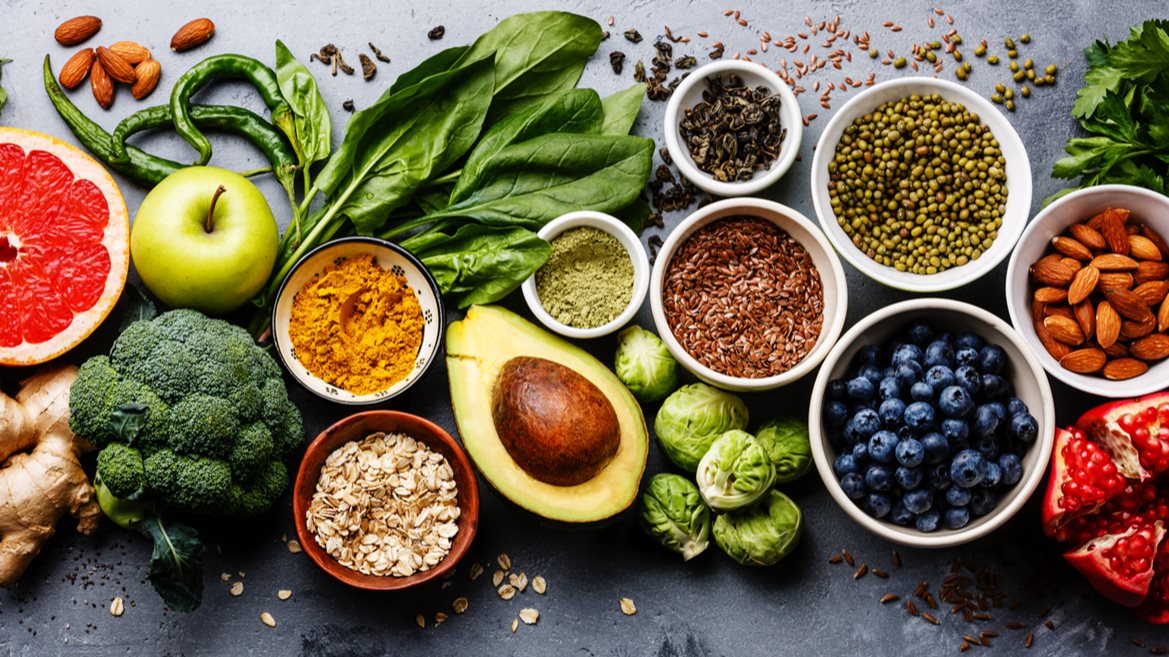The disconnect between eating well and being nourished is Nutrient Depletion
Nutrient depletion refers to the loss of nutrients and micronutrients in the most basic of places, the soil in which we grow our food. Over the last 50-60 years, the number of nutrients, including protein, B vitamins, calcium, iron, and magnesium have decreased dramatically in our crops. In some of these, the amounts have decreased as much as 300-400%! Crops are larger, which decreases the richness of soil micronutrients and organic matter. Fertilizers, herbicides, and pesticides deplete nutrients and block our ability to absorb them well. Farmers pick fruits and vegetables when they are not fully ripe, therefore, they are lower in phytonutrients.
Why the Discrepancy?
Nutrient depletion is why there is a huge discrepancy between what people eat and their nutritional status. In my clinical practice, I often see nutritional testing reveal severe malnutrition and nutrient deficiencies in people eating very clean, whole food diets. Food malabsorption is one obvious reason for this is. Putting food in your mouth and getting it into the cell are two different things. Nourishment requires work from the body. Furthermore, there are many things that affect the food we eat, even before we consume it.
Stress and Malabsorption
Malabsorption is a common issue for many reasons. Firstly, we live in a stressed society, with the sympathetic nervous system dominance being the norm. Our gut does not function well under stress. Stomach acid and enzymes underproduce and food goes through partially digested and cannot be absorbed well. Imbalances in the gut microbiome may result, further impairing absorption. Excesses of sugar, caffeine, and alcohol all add to the poor absorption. Anti-nutrients, on foods like grains and nuts, can further block absorption of vital nutrients,
Pharmaceutical Drug Use & Nutrient Depletions
The drastic increase in pharmaceutical drug use causes countless depletion in nutrients. They may decrease nutrient absorption, block their use, or increase their excretion. Common nutrient drainers are NSAIDs (aspirin and Tylenol), acid-blocking drugs (Pantoprazole, Rabeprazole, Tums), and statins (Lipitor, Crestor). Antibiotics have also had a huge impact on nutrients through direct effects and effects on the gut microbiome.
Toxicity & Nutrient Depletion
Toxicity opposes nutrients. Our bodies suffer exposure to environmental toxins on a daily basis from non-organic fruits and vegetables. Proven harmful toxins cover them. Organic foods are higher in many nutrients, such as antioxidants, lycopene, vitamin C, trace minerals, iron, and magnesium. Studies done on children eating organic diets showed 600% fewer organophosphates (a form of pesticide) than those eating conventional diets. An analysis by the Environmental working group showed that > 20 million children consume more than 8 pesticides daily. Eating non-organic food can pose a great risk to the neurological, endocrine, hepatic, and metabolic health of both children and adults.
Nutrients Absorption
Once absorbed, nutrients need to get to the cell, which requires good circulation, healthy cell membranes, and receptor integrity. Factors that block this are toxicity (heavy metals and chemicals) and inflammation. Nutrients use energy more quickly based on the cell’s energy requirements. It is a supply and demand issue. An inflamed or stressed cell has unhealthy cell membranes, blocked receptors, and large energy demand. Nutrients can’t integrate or are used up as quickly as they come in.
So… what can we do about all of this?
Food and Supplements
- Choose organic foods where possible – eat only the ‘clean fifteen‘ of conventional foods, or at very least, avoid the ‘dirty dozen‘
- Eat a diet high in phytonutrients (plant nutrients), including lots of nutrient dense herbs and spices.
- Limit foods that affect absorption of nutrients, which include sugar, coffee and grains.
- Avoid spikes in glucose and insulin by consuming a lower glycemic index diet to avoid magnesium and chromium depletion.
- Support cell membranes with a good quality fish oil and/or phospholipid supplement. Dosing and type are guided by your health care professional. Fish oils need to be of high quality, due tot potential for mercury contamination.
- Support stomach acid and digestive enzyme function, either by supplementation or increasing acidic and fermented foods, as tolerated.
Toxins and Medication
Clean up your environment to avoid toxins. This means clean water, clean air, clean cosmetics, and cleaning products. Filter water with a tabletop filter or reverse osmosis unit. A fridge filter or plastic water filter is not sufficient. A HEPA and VOC air filter will remove particulate matter from the air, which is responsible for much of the toxins we accumulate.
Avoid acid suppressant medications, unless specifically indicated. There are few long term indications for these medications. If you are already using these medications, wean off them slowly with the guidance of a knowledgeable physician to avoid rebound symptoms.
Stress
Stress management and calming the sympathetic nervous system improves gut health and decrease nutrient demand. Achieve through meditation, relaxation, exercise, socializing, and acupuncture, among other things.
Find sources of inflammation and toxicity, which deplete nutrients and have functional medicine testing done. This will help individualize your care. When you are feeling like you are doing everything else right but need to get to the root of why you are undernourished, consider the following tests:
- Food sensitivity testing
- Gastrointestinal/stool testing
- Nutrient testing
- Heavy metal/chemical testing
- Immune system testing
Let’s help you regain your energy and vitality today. Contact us here.
Author:
Dr. Michelle van der Westhuizen, MD






